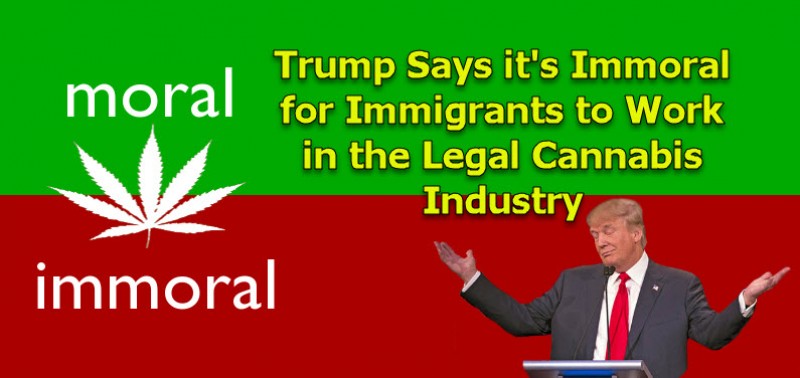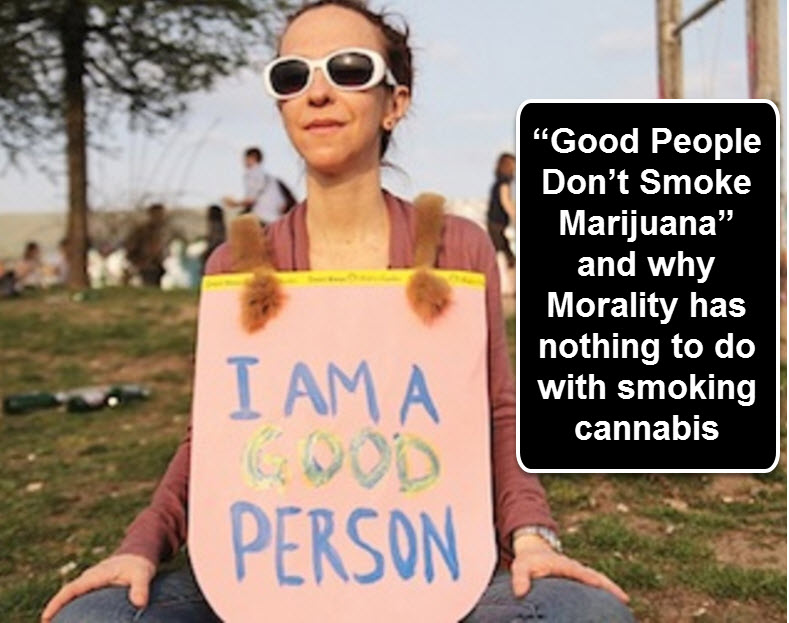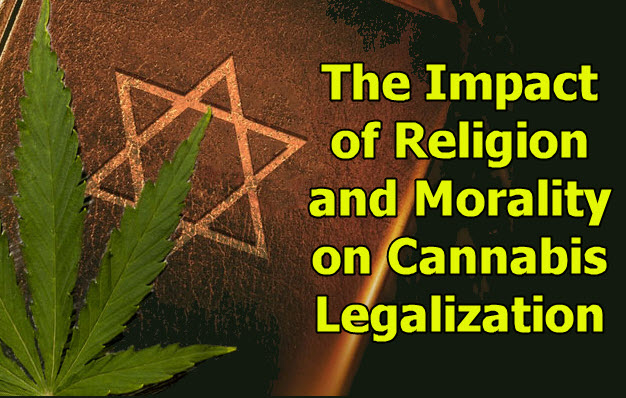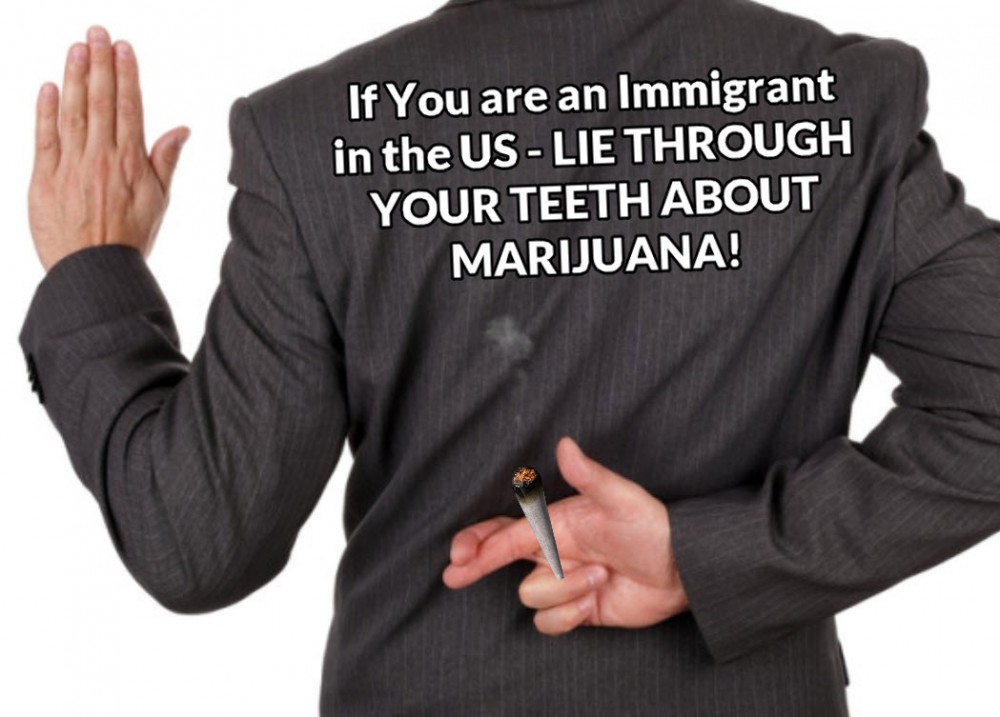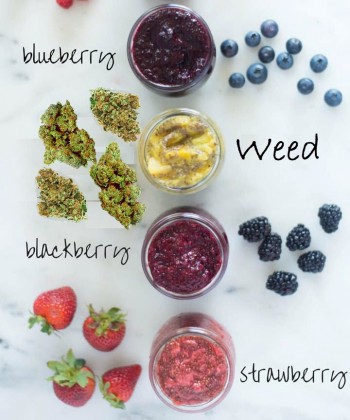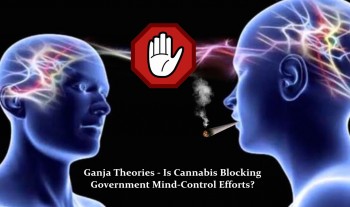Working For The Cannabis Industry Can Crush Your Hopes Of Migrating To The USA
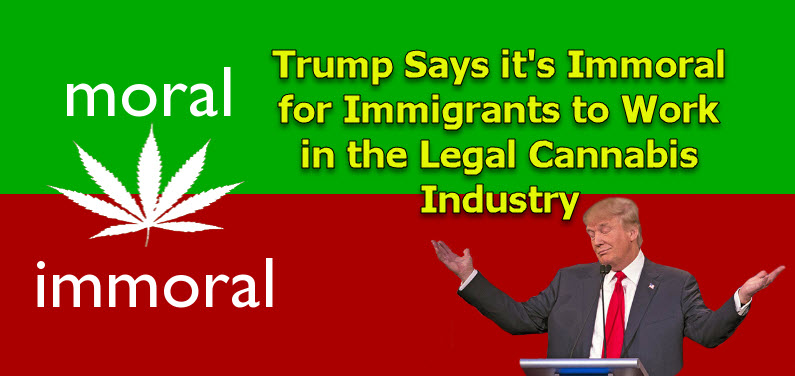
Just this Friday, it was declared by a federal immigration agency that immigrants who consume or even work for cannabis businesses is immoral, thus making them ineligible for US citizenship.
The US Citizenship and Immigration Services (USCIS) says so, because when one applies for naturalization, which is how the citizenship process begins, it’s necessary to establish “good moral character” for five years before the application. This requirement has received backlash by civil rights advocates and scholars for the fact that defining morality is subjective. Based on a memo issued by the USCIS, “violation of federal controlled substance law, including for marijuana, established by a conviction or admission, is generally a bar to establishing [good moral character] for naturalization even where the conduct would not be a violation of state law.”
They go on to say that an applicant “who is involved in certain marijuana related activities may lack GMC if found to have violated federal law, even if such activity is not unlawful under applicable state or foreign laws.”
Despite the federal policy that says cannabis use violates “good moral character”, there seems to be a connection between the spread of legalization and the agency’s need to make clarifications. “A number of states and the District of Columbia (DC) have enacted laws permitting ‘medical’ or ‘recreational’ use of marijuana. Marijuana, however, remains classified as ‘Schedule 1” or controlled substance under the federal CSA,” says the new policy manual of the USCIS. “Schedule 1 substances have no accepted medical use pursuant to the CSA. Classification of marijuana as a Schedule 1 controlled substance under federal law means that certain conduct involving marijuana, which is in violation of the CSA, continues to constitute a conditional bar to GMC for naturalization eligibity, even where such activity is not a criminal offense under state law.”
“Such an offense under federal law may include, but is not limited to, possession, manufacture or production, or distribution or dispensing of marijuana. For example, possession of marijuana for recreational or medical purposes or employment in the marijuana industry may constitute conduct that violates federal controlled substance laws. Depending on the specific facts of the case, these activities, whether established by a conviction or an admission by the applicant, may preclude a finding of GMC for the applicant during the statutory period. An admission must meet the long held requirements for a valid ‘admission’ of an offense. Note that even if an applicant does not have a conviction or make a valid admission to a marijuana-related offense, he or she may be unable to meet the burden of proof to show that he or she has not committed such an offense,” it goes on to say.
The policy does exclude “a single offense of simple possession of 30 grams or less of marijuana.”
The issue has been affecting state-legal markets, and this is one of the less-talked about problems that has now received attention. However, it isn’t good news for aspiring immigrants.
Denver Mayor Michael B. Hancock wrote to US Attorney General William Barr earlier this month, asking for clarification from the Department of Justice regarding policies that have been “negatively impacting” the legal immigration status for people who work in the cannabis industry in Colorado. “Denver understands the need for federal laws and regulations regarding citizenship and immigration, but we are seeing the heartbreaking effects that those federal laws and regulations are having on our residents,” reads Hancock’s statement.
The Mayor’s statement was prompted by an issue in Colorado, involving two legal immigrants whom the USCIS told that they were ineligible to apply for naturalization because of their “past or current employment in the cannabis industry,” says a press release. The immigrants, one hailing from El Salvador while the other was from Lithuania, have both been permanent residents in the United States for over 20 years.
“They have both graduated from Colorado schools, paid their taxes and consider Colorado their home,” says the release.
Lawyers also disclosed to the city staff that immigration authorities are “trapping immigrants into openly admitting to felonious activities under federal law, thus putting them at risk of detention and deportation should they travel abroad and later return to the US.”
“I’m sorry about what’s happening to you,” the Mayor told the immigrants in his statement. “This is horrible.”
What’s a legal immigrant to do now? The US government continues to allow the country to shoot ourselves in the foot by allowing all these problems to happen. It isn’t right to allow immigrants to be called “immoral” for working in an industry that is completely legal, but it’s up to the federal government to stop considering cannabis a Schedule 1 substance once and for all. Until that happens, we’ve only seen the tip of the iceberg.
IS CANNABIS A MORAL ISSUE, READ THESE...
MORALITY AND CANNABIS, WHY IT DOESN'T MATTER, CLICK HERE.
OR..
RELIGION AND MORALITY IN CANNABIS LEGALIZATION, CLICK HERE.

